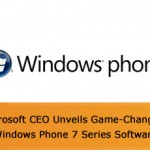 Barcelona, Spain — Nokia and Intel at the Mobile World Congress, on Monday said they have forged an alliance in a new clash of the operating systems with the joint creation of MeeGo, to power sophisticated smartphones and netbook computers, in an attempt to catch up with Apple and Google.
Barcelona, Spain — Nokia and Intel at the Mobile World Congress, on Monday said they have forged an alliance in a new clash of the operating systems with the joint creation of MeeGo, to power sophisticated smartphones and netbook computers, in an attempt to catch up with Apple and Google.
When executives from Nokia, the world’s biggest maker of mobile handsets, and Intel appeared on the stage in Barcelona Monday to announce their latest joint effort, both sides hurried to say they wanted to avoid the “f-word.” That is “f” as in “fragmentation.”
Both the company said they would merge its Linux Maemo software platform, used in its epitome of N900 phone, with Intel’s Moblin, which is also based on Linux open-sourced software, to create a new platform, MeeGo.

MeeGo is an hybrid of two operating system that blurs the line between a robust mobile phone OS and a lightweight netbook OS — The name originated because the field of operating systems for cellphones is extremely complicated and seems to be getting more so, not like the neat world of PCs where Microsoft’s Windows dominates. In smartphones, programmers have many potential targets for their application-development efforts.
MeeGo, the new platform, could empower Nokia to improve its enervated position in high-end smartphones, where the world’s largest mobile maker has faced criticism that it lacks a handset to rival Apple’s iPhone.
Moreover, the system could also help Intel, the world’s largest chipmaker, to ultimately push its way into the mobile market after several failed initiatives.
“They have realized the only way to beat Microsoft, Google and Apple is to do it through scale — get the platform to more devices,” said John Strand, owner and head of Strand Consult after the announcements at the Mobile World Congress fair.
“However, they have not realized it is not about getting to many platforms, it is about making something the consumer likes. The bees do not go for the biggest garden, they go for the most beautiful flowers,” Strand said.
The cellphone industry is more and more concentrating on smartphones, devices with computer-like potentialities that have fatter margins than ordinary phones, whose sales may overtake those of other phones as early as this year.
The announcement underlines how far Apple’s iPhone and Google’s Android operating system for handsets have set the pace in smartphone innovation. MeeGo is projected for high-end smartphones, tablets, netbooks, in-vehicle technology and even connected televisions. It supports ARM architectures — commonly used in advanced smartphones and smartbooks — and Intel’s Atom processor. The first devices should launch in the second half of 2010.
Similar to Android, MeeGo software will be freely available to manufacturers of smartphones and other consumer electronics devices. Software developers will also be able to use MeeGo on an open source basis, so that they can build applications that run on any devices featuring the operating system.
Olli-Pekka Kallasvuo, Nokia’s chief executive, said in a statement that MeeGo would be likely to feature on a broader range of devices than Android, which has just started to be used on netbooks as well as smartphones.
He added: “MeeGo will cover a wide range of devices . . . This will cover more ground than any other approach in this area.”
Kallasvuo denied the development of MeeGo would kill off Symbian, the company’s longstanding operating system for smartphones, which some analysts believe falls short of Apple’s iPhone OS platform and Google’s Android. “Symbian is alive and Symbian is strong,” he said.
Microsoft’s Windows, despite unenthusiastic reviews, has a measurable chunk of the market. Research in Motion is trying to build a software community around its popular Blackberry, as is Palm for its Pre and Pixi smartphones. Chip maker Qualcomm has its BREW “operating environment,” another target for developers. Sun Microsystems, now part of Oracle, still distributes a lot of its Java programming code on phones.
“People will be able to keep their favorite applications whenever they change devices,” said Kai Oistamo, Nokia’s executive vice president for devices, during a press event at the Mobile World Congress in Barcelona, where the MeeGo effort was unveiled.
Paul Otellini, Intel’s chief executive, said Intel was planning a renewed push into the smartphone market, where it has lacked power-efficient chipsets to compete with Arm, Qualcomm and Texas Instruments. Both Kallasvuo and Otellini acknowledged that MeeGo’s success would partly rest on the willingness of other mobile phone manufacturers and chipset makers to use the operating system, rather than just Nokia and Intel.
Asked about that issue in Barcelona, Oistamo said “Nokia’s hardware strategy is that we are working with the best partners,” while looking at Renee James, the Intel senior vice president who joined him on stage. “It is natural for us to pick the best partners.”


